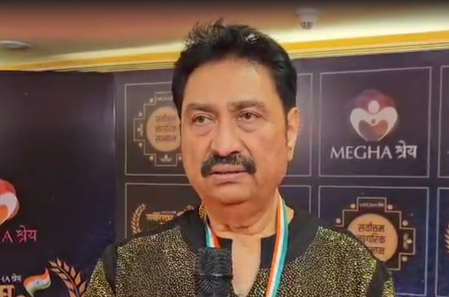
Mumbai, Aug 7 (IANS) Veteran playback singer Kumar Sanu has weighed in on the ongoing language debate, emphasising that talent and adaptability matter more than language proficiency when it comes to professional opportunities.
Speaking exclusively to IANS, the singer shared his thoughts on the language row, saying that everyone should have the freedom to work across the country, regardless of linguistic differences. Sanu remarked that the ability to pick up a language depends on an individual’s capacity and interest, and that it should not become a barrier to professional opportunities.
He shared, “I don’t want to say anything about the language. The national language of our country. Everybody has the right to work in any place. Language should come or not depends on their quality…how much they grab it. It depends on how much they can speak or not. I think it’s okay.”
As discussions around linguistic freedom gain momentum, National Award-winning playback singer Sonu Nigam was embroiled in the center of controversy after a video from his Bengaluru concert went viral. The singer came under fire following an incident at his recent concert held at East Point College in Virgonagar, Bengaluru. The controversy erupted after he declined a fan’s request to sing a Kannada song, citing the manner in which the request was made as inappropriate.
What further stirred the debate was Nigam’s comparison of the situation to the Pahalgam terror attack in Jammu and Kashmir, a remark that drew sharp criticism. His comments sparked outrage within the Kannada-speaking community, with a pro-Kannada organization filing a formal complaint, accusing the singer of promoting linguistic discord. The incident added fuel to the ongoing national conversation around language and regional identity.
In December last year, acclaimed Bengali singer Iman Chakraborty sparked an online debate after a video from her concert in Rajarhat, West Bengal, went viral. The footage showed her firmly addressing an audience member who had called for a ban on Bengali songs during the event.
In April, the Maharashtra government made Hindi a compulsory third language in state-run primary schools, alongside Marathi and English—stating it aligned with the national three-language policy. The move triggered mixed reactions, particularly among those concerned about linguistic imposition.
Adding to the unrest, videos of Maharashtra Navnirman Sena (MNS) workers targeting non-Marathi speakers also surfaced on social media.
–IANS
ps/



